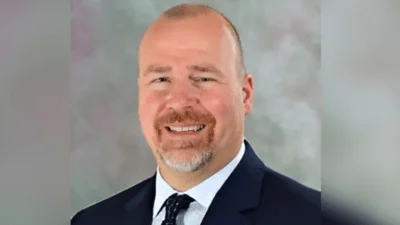President Donald J. Trump speaks during an event at Fort Drum, New York, on Aug. 13 before signing the National Defense Authorization Act of 2019. | U.S. Army photo by Sgt. Thomas Scaggs
President Donald J. Trump speaks during an event at Fort Drum, New York, on Aug. 13 before signing the National Defense Authorization Act of 2019. | U.S. Army photo by Sgt. Thomas Scaggs
When the Wisconsin Elections Commission voted down the Wisconsin Institute for Law and Liberty (WILL)’s request to clarify ballot harvesting rules ahead of Election Day, it was during a time when cases of COVID-19 were rising along with the number of absentee voter ballots.
Some 169,541 absentee ballots were reportedly cast in Milwaukee alone on Nov. 3, according to media reports.
“To end with an enhanced turnout where some of the numbers are a little bit startling, not necessarily unheard of, but it's infrequent to see 90% of registered voters turnout particularly in the city of Milwaukee where that has not been the experience in the past," said Rick Esenberg, WILL's president and general counsel. "So it's not surprising that the campaigns would want to know whether everything has been done properly.”
About five months after WILL's plea to the commission to clarify the state’s ballot harvesting law fell on deaf ears, WisconsinVote.org reports President Trump lost the state to Democratic presidential nominee Joe Biden, who garnered nearly 50% of the votes.
“What we may want to do here, putting aside our partisan preferences, is take the time to look at this process and make sure that everything is being done in the way that it's supposed to be done,” Esenberg told The Sconi.
Ballot harvesting is the act of requesting ballots on behalf of voters by a third party, the third party assisting the voter in filling out the ballot, and the third party assisting in returning the ballot.
“If in fact there are allegations of significant ballot harvesting, that could then become the basis for litigation with somebody making in court the argument that we made to the election commission,” Esenberg said in an interview.
Esenberg had argued in favor of clarifying ballot harvesting rules because, he said, Wisconsin law doesn't directly address the question.
“When you have absentee voting by mail, the process is taken out of the supervision of election officials to a substantial degree,” Esenberg said. “There are more opportunities for improper behavior or even mistakes than normally exists.”
Three Democrat election commissioners disagreed with Eisenberg and voted against the argument back in June, while three Republican commissioners voted in favor.
“There are reasons I think for the Trump campaign, in this instance, to be asking these questions,” Esenberg said. “They're the ones who came out from behind so it's understandable and perfectly appropriate for them to do that. It’s their responsibility to do that. No one else really is going to do that.”
Esenberg added that he’d heard people say there was or had been instances of ballot harvesting but he hadn’t had the opportunity to review and evaluate the evidence.
“If people are engaged in fraud, they tend not to do it out in the open,” he said. “Instead, these campaigns will look for irregularities. They'll look for something that just doesn't seem right. Some of these turnout numbers are a little surprising because they seem to be quite different than what we've had in the past.”
Wisconsin voter turnout in the 2020 election was about 72%, similar to 2016 (67%) and 2012 (70%).



 Alerts Sign-up
Alerts Sign-up